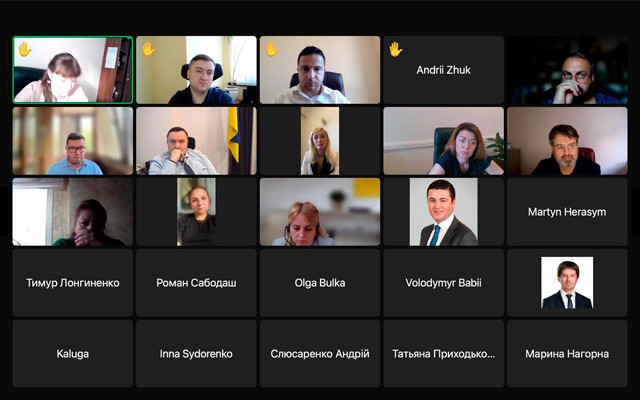
Electronic or paper? How courts will handle cases after October 18

With the introduction of mandatory electronic offices in the Unified Judicial Information and Telecommunication System, the issues of further form of case management (electronic or paper), as well as the introduction of appropriate amendments to the instructions on case management in the courts of Ukraine, arise.
To discuss these issues, MP Roman Babiy recently organized and held a working group meeting with the participation of MPs, judges, representatives of the High Council of Justice, the State Judicial Administration, the Council of Judges of Ukraine, and the National Bar Association of Ukraine. As a reminder, on October 18, Law No. 3200-IX dated 29.06.2023 «On Amendments to Certain Legislative Acts of Ukraine on Mandatory Registration and Use of Electronic Offices in the Unified Judicial Information and Telecommunication System or its Separate Subsystem (Module) Enabling Document Exchange» comes into force.
The amended versions of Article 6 of the Commercial Procedure Code, Article 14 of the Civil Procedure Code and Article 17 of the Code of Administrative Procedure stipulate that lawyers, notaries, public and private executors, insolvency officers, forensic experts, state bodies, local governments and all legal entities are obliged to register their electronic offices in the UJITS (see step-by-step video instructions on how to do this).
During the discussion of the issue, HCJ member Roman Maselko spoke in favor of conducting the case in a combined (digital and paper) form. And Bohdan Monich, Chair of the Supreme Court of Ukraine, suggested moving towards the digitalization of judicial proceedings. At the same time, he noted that persons who are not required by law to have an electronic cabinet (for example, the elderly) should not be restricted in their access to justice.
Representatives of the judiciary mostly supported the changes to the instructions on case management in terms of introducing the possibility of forming a court case in a combined form. They cited lack of funding and high paper consumption. They also pointed to the lack of a user-friendly interface in the judge's office for processing case files (many judges use the D-3 system to view case files). In addition, in order to be able to digitally examine case files, each courtroom, including the judge's seat, should be equipped with a computer, which is currently not the case.
Yuriy Hryhorenko, Deputy Chair of the UNBA Committee on Protection of Advocates' Rights and Guarantees of Legal Practice, drew attention to the fact that individuals, including sole proprietors, are not required to have electronic accounts in the UJITS, although they can also be parties to proceedings. «These are cases of administrative offenses, criminal cases, civil cases, minor cases, labor and other disputes, - he explained. - Commercial and administrative courts may hear disputes involving an individual entrepreneur (subject to self-representation), corporate disputes between a company member and a company».
According to the lawyer, it may be difficult for individuals who do not have an electronic cabinet to familiarize themselves with the case file. After all, there is currently no mechanism for these persons to access the case file in digital or combined form. «Restriction of access to case files for this category of persons will be a restriction of access to justice, which is a violation of Article 6 of the Convention for the Protection of Human Rights and Fundamental Freedoms», - summarized Yuriy Hryhorenko.
© 2025 Unba.org.ua Всі права захищені
"Національна Асоціація Адвокатів України". Передрук та інше використання матеріалів, що розміщені на даному веб-сайті дозволяється за умови посилання на джерело. Інтернет-видання та засоби масової інформації можуть використовувати матеріали сайту, розміщувати відео з офіційного веб-сайту Національної Асоціації Адвокатів України на власних веб-сторінках, за умови гіперпосилання на офіційний веб-сайт Національної Асоціації Адвокатів України. Заборонено передрук та використання матеріалів, у яких міститься посилання на інші інтернет-видання та засоби масової інформації. Матеріали позначені міткою "Реклама", публікуються на правах реклами.